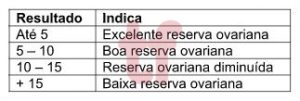FSH, LH, GnRh. These are short acronyms, but they mean a lot for those who want to get pregnant. These hormones are very important for ovulation and also for female fertility. Did you know that a simple FSH test can help women get pregnant more easily? That’s why the importance of these tests is being highlighted in a campaign on several websites about the topic. The hashtag #fertilityassessment is being used to spread awareness about a series of simple tests that make all the difference for fertility.

The FSH test is extremely important! It checks the ovarian reserve available in women and also influences the growth of eggs in their early stage1. Ovarian reserve can be determined in several ways, through this hormone FSH or with a more modern one, anti-mullerian hormone. This hormone is stimulated by another one, GnRh, which triggers an increase in FSH levels. FSH hormone is also present in men, but in this case it helps with sperm production.
In women specifically, the FSH hormone peaks at the beginning of the menstrual cycle, which can be before or after expected for regular cycles, or unpredictable in irregular cycles. This peak is what starts the fertile window. In addition, FSH stimulates estrogen2, another hormone essential for the fertile period. It helps eggs mature and grow properly until they can be released.
What Are the Appropriate Levels for Fertility?
We can say that FSH levels can make all the difference when we take the patient’s age into account. Women over 35 should use lower cut-off values, as they would have a lower ovarian reserve than a young woman of 20. However, there is a chart where the parameters can be checked:
Values above 15 are worrisome for women who want to get pregnant. They may mean the ovarian reserve is below what it should be, so a doctor should be informed to assess what needs to be done and look into the possibility of early menopause; usually this warning occurs when FSH is above 30, but it should be investigated as soon as possible. From 10 to 15 the ovarian reserve is considered low. Women with this diagnosis should undergo a more thorough evaluation to see what can help solve the issue.
From 05 to 10 the ovarian reserve, as indicated by FSH hormone levels, is at an acceptable level and is considered good. Usually, women over 28 get this result, which is considered perfectly normal. Below 5 the ovarian reserve is considered excellent! Theoretically, this woman does not have problems with follicle stimulation, but some other tests are needed to confirm everything is okay. Among them, progesterone, estrogen, LH, prolactin, and testosterone hormone tests.

Causes of low FSH levels are more common than you might expect. Polycystic ovaries, for example, can cause low FSH. Another factor mentioned earlier is age — as it increases, there is a lower ovarian reserve with each missed ovulatory cycle3. Thyroid problems are also a sign that things may get complicated with FSH. Obesity and smoking are also among the enemies of FSH. It is worth remembering that FSH tends to vary during the cycle — at times it may be higher than at others — and labs may even interpret results differently, as you can see in the image next to this paragraph.
Any questions about FSH? Talk to your doctor. Such a simple test can determine if you are healthy enough to produce eggs and get pregnant. Look for the hashtag #fertilityassessment on social media and on the internet and check out all the campaign posts! You can also find more on the topic from the campaign’s partners:
IVI Blog Fertility Clinic Almanaque dos Pais Mônica Romeiro Mother in the Flesh Tatiana da Costa Attuned Mom Priscilla Aitelli
On June 19, 2015, Dr. Silvana Chedid will give a free online lecture on the topic! Those who have trouble getting pregnant, and even women who are not yet trying, are invited to participate. Clear up one of the key points of fertility with a specialist. Take care of your reproductive health; your future children will thank you!
See also: When Does the Ovulation Period Occur?












